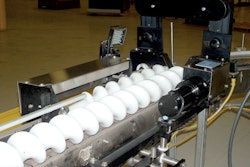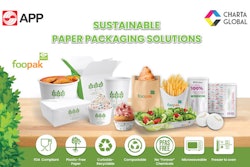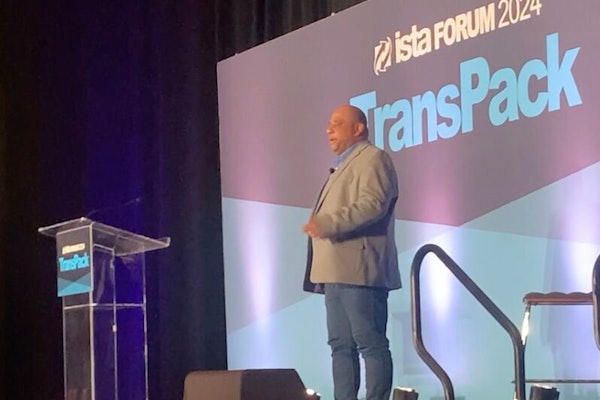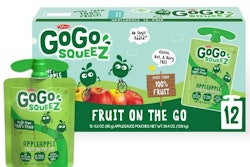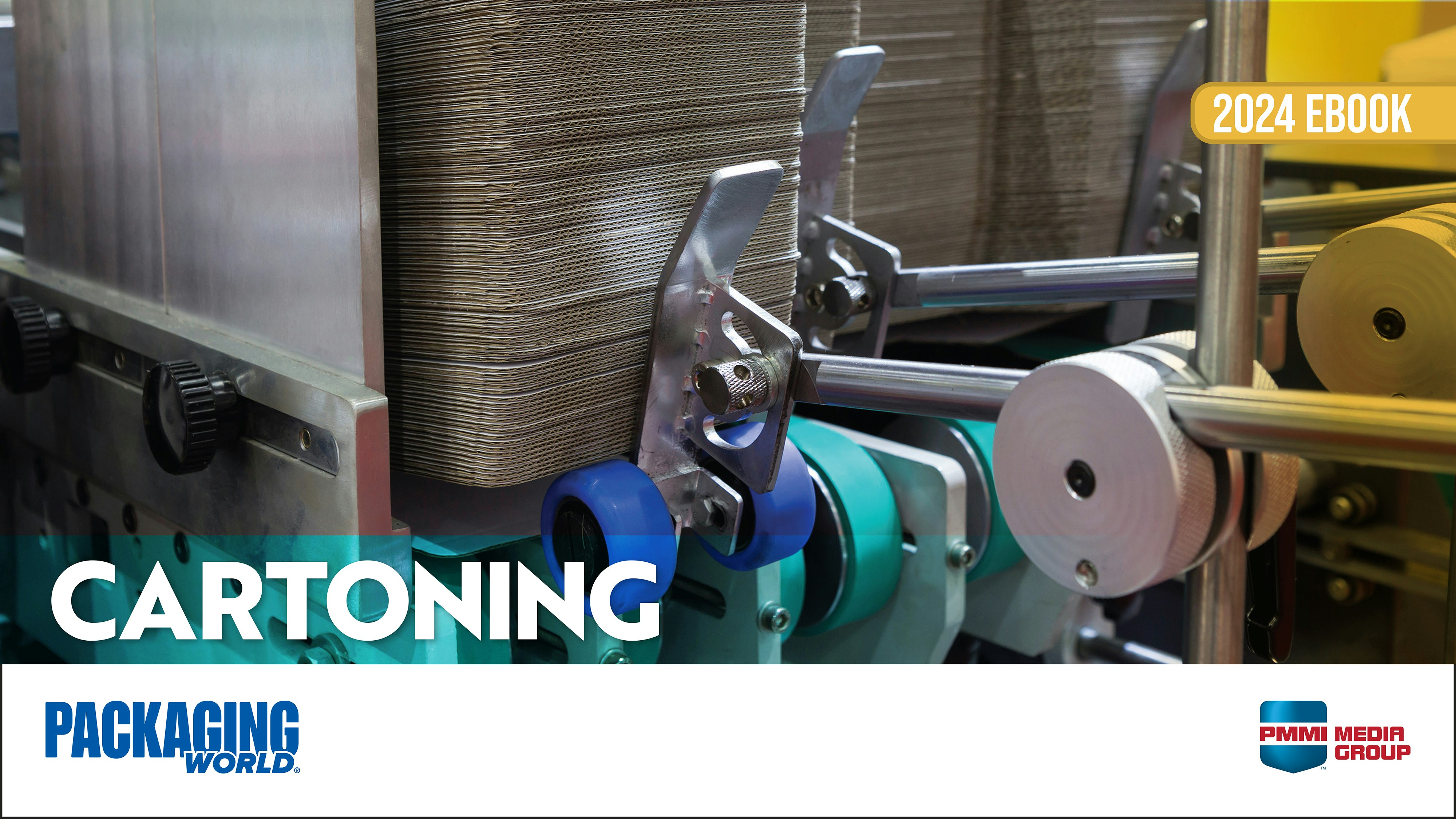Oh, man, does Congressman John Dingell seem mad at FDA.
For one thing, the Congressman could be found in late April butting heads with FDA commissioner Andrew Von Eschenbach at a hearing, berating the commissioner over the heparin tragedy that appears linked to foreign manufacturers that FDA is supposed to inspect.
The New York Times described Dingell as complaining that, to quote the Times, “he’s tired of hearing from FDA commissioners about conducting business in new, innovative ways in place of additional financial resources,” and that, “commissioners have talked about the need for the agency to be leaner and meaner. But it’s turned out that it’s leaner, weaker, and less capable of doing its job.”
For another, he is evidently so dissatisfied with how the FDA is doing its job that he recently distributed to his colleagues a “Discussion Draft” of a bill that would give FDA new money and new powers to help it assure a safe supply of food, drugs, medical devices, biological products, and cosmetics.
The bill is already attracting attention because of the strength of its provisions, which include a number of new fees for industry to pay and potential penalties and FDA power to order recalls.
Now, as Dingell pointed out clearly, a “discussion draft” is just designed to get the ball rolling on the various topics a bill addresses, to lead to discussion and further development. So it’s reasonable to expect that many of the draft’s proposals won’t survive in their present form, if at all, into final legislation that changes your business burdens. Burdens like more records, more reports, more certifications, and, of course, more money to pay the government.
But still. Oh, man, this draft law, called the “FDA Globalization Act of 2008,” reads like a Strengthen FDA Wish List, combining ideas both old and new that would make life harder for many businesses. Its various changes would toughen the already tough Federal Food, Drug and Cosmetic Act, which has already been tweaked, adjusted, and added to over the years, including most recently in 2007 through the FDA Amendments Act. If even some of the provisions in this draft make it into law, there would be big changes in how food, drug, device, and cosmetics companies do business.
And while many of the ideas in it are not new, some are, and the very fact that they have been combined into a draft by the powerful chair of the House Energy and Commerce committee has made many people take notice.
Ricardo Carvajal, a Washington, DC, lawyer whose practice focuses on FDA regulatory matters, and who used to be an Associate Chief Counsel at FDA, says, “My sense of the discussion draft of the FDA Globalization Act of 2008 is that it is being taken seriously in all quarters.”
He says one can’t help but conclude that recent headlines raising questions about FDA’s ability
to assure a safe food supply have inspired proposals like this. “Everyone recognizes,” he says, “that the momentum for legislative changes has been building steadily in Congress in response to mounting concerns over food safety, especially with regard to imports, and the Committee on Energy and Commerce has announced its intention to hold hearings and markup legislation in the near future.”
Many of the changes made to the FDA’s powers over recent years have been intended to make the agency stronger. But many have also added responsibilities for the agency, putting more on its plate without commensurate increases in money to do the new jobs. Nothing makes an agency feel pressured quite like adding to its responsibilities without adding to its money.
In some ways, today’s beleaguered FDA is not like yesterday’s. It’s got to help protect against terror tamperings, against counterfeit products, and against good old-fashioned poor quality and contamination.
A big complicating factor making all those threats worse is today’s globalized marketplace. U.S. consumers use more imported foods and drugs than they used to, so oversight over manufacturing means more supervision of manufacturers in far-flung places. That costs money and is often complicated.
FDA’s chronic lack of adequate funding is such a truism that traditional rivals like industry groups and consumer advocates and both Democrats and Republicans, have combined into lobbying coalitions to get FDA more money.
Well, Congressman Dingell’s discussion draft calls for a range of new ideas, like new country of origin labeling for foods, the power for FDA to order recalls of foods, and registration of cosmetics makers.
But what catches the eye most dramatically is its way for FDA
to raise money: More costs to the regulated industries. He’s got proposals to:
• add a $2,000 cost to register food facilities (the registration requirement came in the post 9/11 Bioterror Act, but it doesn’t cost anything now.)
• add a registration fee for drug and device facilities, too, but the bill leaves the amount to FDA to determine;
• add an accreditation fee to be assessed against foreign governments or businesses and laboratories that are cleared to assess and sanction food operations;
• charge a fee to reinspect a facility that has committed a violation relating to food, including a good manufacturing practice violation.
• add a requirement for cosmetics facilities to register, at a cost of $2,000 per year, and report serious adverse reactions to their products.
Measures like these address the lack of FDA funds for its oversight activities. Industry representatives have already expressed their objection to what are essentially new taxes on their operations. Even FDA officials have indicated that FDA prefers to set its priorities to target high-risk issues, rather than get across-the-board increases in funding and responsibilities.
As for attacking the problem of unreliable sources of food and ingredients, this bill would go far beyond the kinds of solid practices outlined in, for example, the Grocery Manufacturers of America’s Handbook, summarized here last month (see packworld.com/article-25253). Instead, the proposed law also calls for a new system under which food facilities would be certified as in compliance with FDA requirements. While certification would be voluntary, you’d have to get the certification from FDA or a certifying agency that itself gets cleared by FDA.
This bill also contains that perennial favorite proposal of those hoping to strengthen FDA: mandatory food recall authority, expanding on the new “reportable food” program that sneaked into law quietly last year and will require companies to report potentially dangerous foods to FDA starting in December.
So, like all proposed legislation, this FDA Globalization Act of 2008 has an uncertain future. Nevertheless, so many of its provisions pack a wallop that packagers would be well advised to track its progress.
Eric can be reached at [email protected],
and visit his firm’s Web site at www.ericfgreenbergpc.com.
For one thing, the Congressman could be found in late April butting heads with FDA commissioner Andrew Von Eschenbach at a hearing, berating the commissioner over the heparin tragedy that appears linked to foreign manufacturers that FDA is supposed to inspect.
The New York Times described Dingell as complaining that, to quote the Times, “he’s tired of hearing from FDA commissioners about conducting business in new, innovative ways in place of additional financial resources,” and that, “commissioners have talked about the need for the agency to be leaner and meaner. But it’s turned out that it’s leaner, weaker, and less capable of doing its job.”
For another, he is evidently so dissatisfied with how the FDA is doing its job that he recently distributed to his colleagues a “Discussion Draft” of a bill that would give FDA new money and new powers to help it assure a safe supply of food, drugs, medical devices, biological products, and cosmetics.
The bill is already attracting attention because of the strength of its provisions, which include a number of new fees for industry to pay and potential penalties and FDA power to order recalls.
Now, as Dingell pointed out clearly, a “discussion draft” is just designed to get the ball rolling on the various topics a bill addresses, to lead to discussion and further development. So it’s reasonable to expect that many of the draft’s proposals won’t survive in their present form, if at all, into final legislation that changes your business burdens. Burdens like more records, more reports, more certifications, and, of course, more money to pay the government.
But still. Oh, man, this draft law, called the “FDA Globalization Act of 2008,” reads like a Strengthen FDA Wish List, combining ideas both old and new that would make life harder for many businesses. Its various changes would toughen the already tough Federal Food, Drug and Cosmetic Act, which has already been tweaked, adjusted, and added to over the years, including most recently in 2007 through the FDA Amendments Act. If even some of the provisions in this draft make it into law, there would be big changes in how food, drug, device, and cosmetics companies do business.
And while many of the ideas in it are not new, some are, and the very fact that they have been combined into a draft by the powerful chair of the House Energy and Commerce committee has made many people take notice.
Ricardo Carvajal, a Washington, DC, lawyer whose practice focuses on FDA regulatory matters, and who used to be an Associate Chief Counsel at FDA, says, “My sense of the discussion draft of the FDA Globalization Act of 2008 is that it is being taken seriously in all quarters.”
He says one can’t help but conclude that recent headlines raising questions about FDA’s ability
to assure a safe food supply have inspired proposals like this. “Everyone recognizes,” he says, “that the momentum for legislative changes has been building steadily in Congress in response to mounting concerns over food safety, especially with regard to imports, and the Committee on Energy and Commerce has announced its intention to hold hearings and markup legislation in the near future.”
Many of the changes made to the FDA’s powers over recent years have been intended to make the agency stronger. But many have also added responsibilities for the agency, putting more on its plate without commensurate increases in money to do the new jobs. Nothing makes an agency feel pressured quite like adding to its responsibilities without adding to its money.
In some ways, today’s beleaguered FDA is not like yesterday’s. It’s got to help protect against terror tamperings, against counterfeit products, and against good old-fashioned poor quality and contamination.
A big complicating factor making all those threats worse is today’s globalized marketplace. U.S. consumers use more imported foods and drugs than they used to, so oversight over manufacturing means more supervision of manufacturers in far-flung places. That costs money and is often complicated.
FDA’s chronic lack of adequate funding is such a truism that traditional rivals like industry groups and consumer advocates and both Democrats and Republicans, have combined into lobbying coalitions to get FDA more money.
Well, Congressman Dingell’s discussion draft calls for a range of new ideas, like new country of origin labeling for foods, the power for FDA to order recalls of foods, and registration of cosmetics makers.
But what catches the eye most dramatically is its way for FDA
to raise money: More costs to the regulated industries. He’s got proposals to:
• add a $2,000 cost to register food facilities (the registration requirement came in the post 9/11 Bioterror Act, but it doesn’t cost anything now.)
• add a registration fee for drug and device facilities, too, but the bill leaves the amount to FDA to determine;
• add an accreditation fee to be assessed against foreign governments or businesses and laboratories that are cleared to assess and sanction food operations;
• charge a fee to reinspect a facility that has committed a violation relating to food, including a good manufacturing practice violation.
• add a requirement for cosmetics facilities to register, at a cost of $2,000 per year, and report serious adverse reactions to their products.
Measures like these address the lack of FDA funds for its oversight activities. Industry representatives have already expressed their objection to what are essentially new taxes on their operations. Even FDA officials have indicated that FDA prefers to set its priorities to target high-risk issues, rather than get across-the-board increases in funding and responsibilities.
As for attacking the problem of unreliable sources of food and ingredients, this bill would go far beyond the kinds of solid practices outlined in, for example, the Grocery Manufacturers of America’s Handbook, summarized here last month (see packworld.com/article-25253). Instead, the proposed law also calls for a new system under which food facilities would be certified as in compliance with FDA requirements. While certification would be voluntary, you’d have to get the certification from FDA or a certifying agency that itself gets cleared by FDA.
This bill also contains that perennial favorite proposal of those hoping to strengthen FDA: mandatory food recall authority, expanding on the new “reportable food” program that sneaked into law quietly last year and will require companies to report potentially dangerous foods to FDA starting in December.
So, like all proposed legislation, this FDA Globalization Act of 2008 has an uncertain future. Nevertheless, so many of its provisions pack a wallop that packagers would be well advised to track its progress.
Eric can be reached at [email protected],
and visit his firm’s Web site at www.ericfgreenbergpc.com.
Companies in this article
